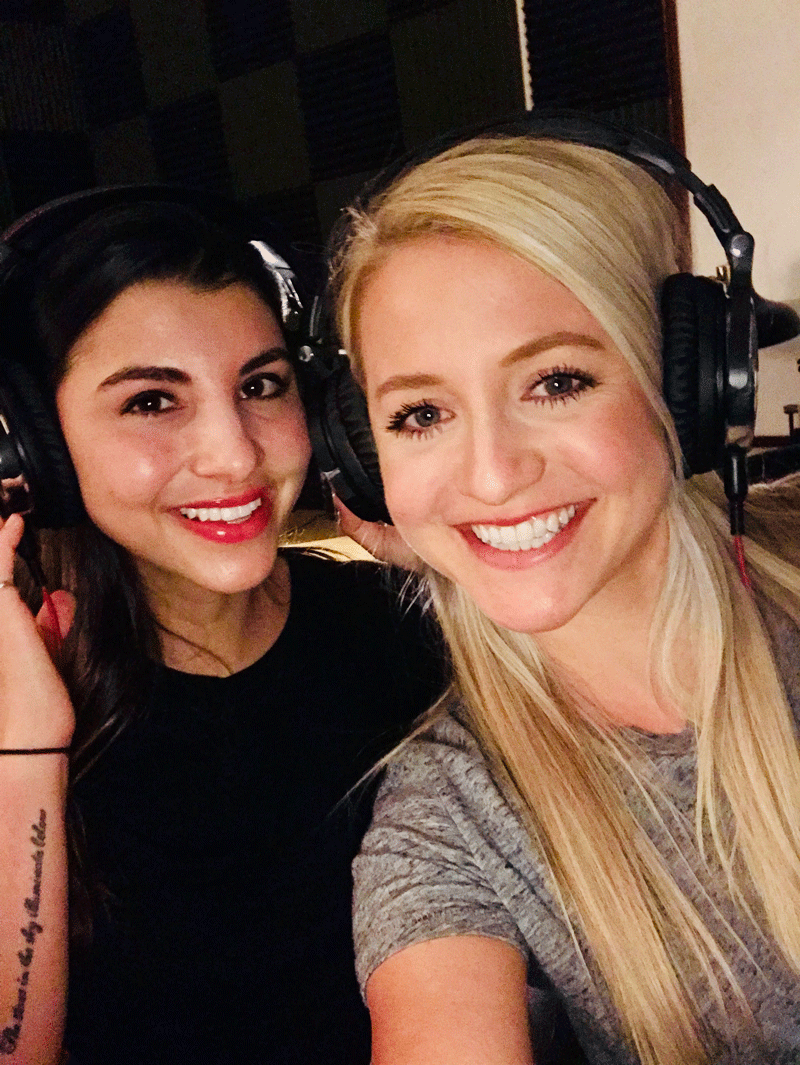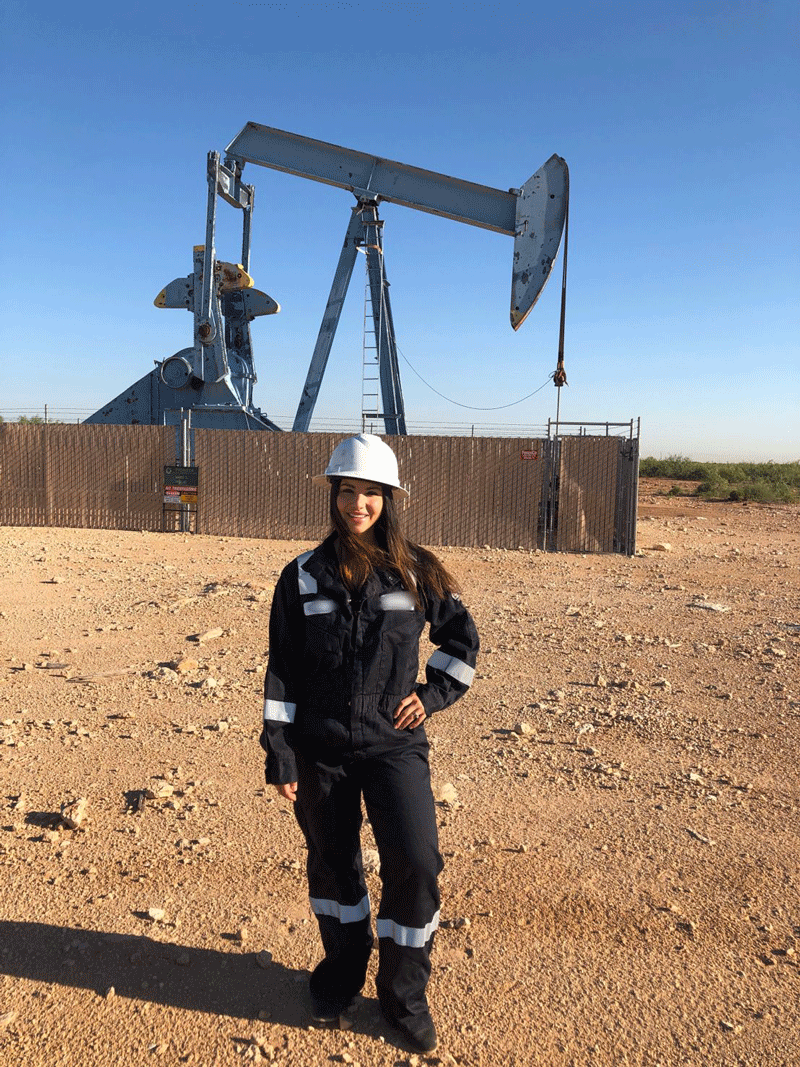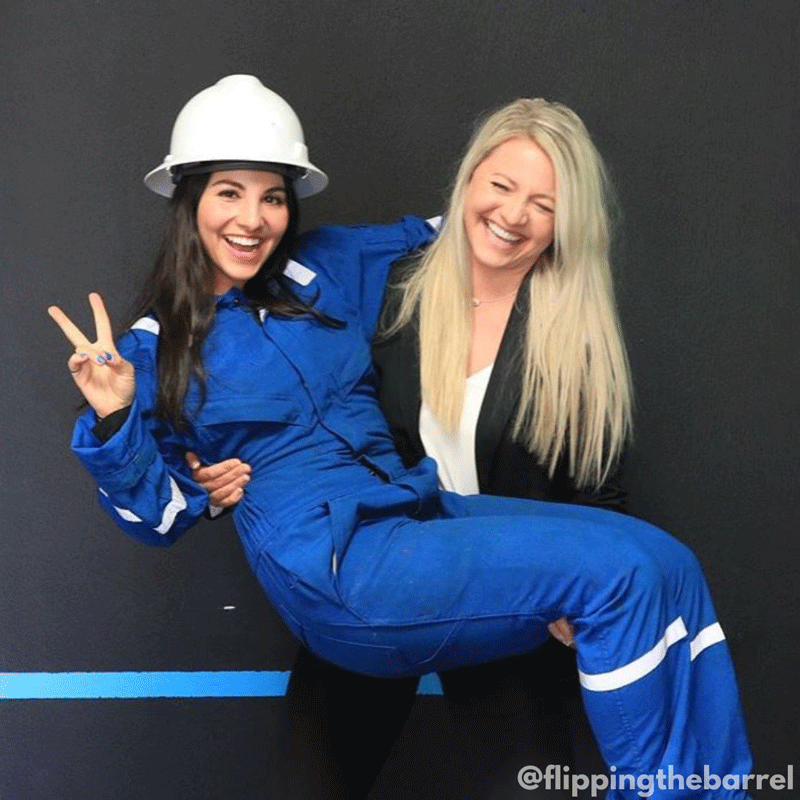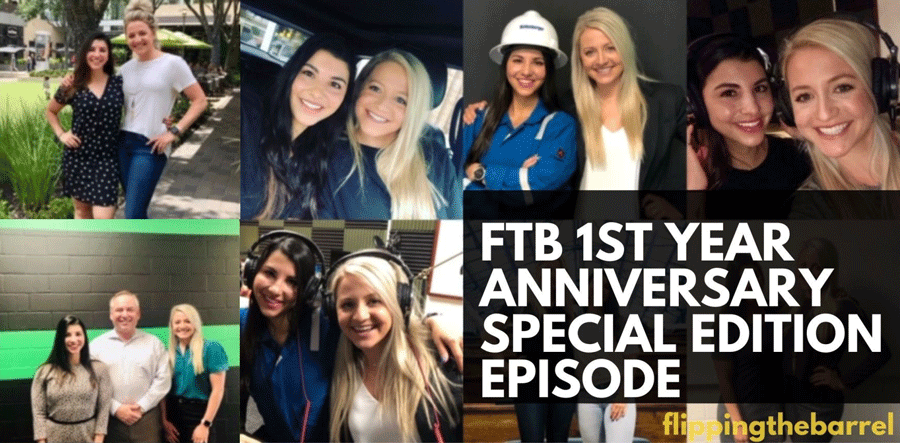Having celebrated the one-year anniversary of their podcast, Flipping the Barrel, co-hosts Massiel Diez Melo, business development manager at Extreme/SLB, and Jamie Elrod, senior account manager NexTier Oilfield Solutions, interview each other and talk about their experiences as women in the field, the impressions their guests have made on them, and the meaning behind the name of their podcast, which they say, “Signifies us talking about the industry from a woman’s perspective. It’s our turn to talk – flipping to the other side of the story.”
What interview from our podcast made the biggest impression on you and why?
 Massiel Diez Melo: Aron Marquez, CEO of Wildcat Oil Tools. He has an amazing and inspiring story. He is the perfect example that you can truly become anyone you want to be in life and that your background/childhood does not ever limit your potential; if anything, it makes you stronger and a fighter. Aron spoke to us about immigrating from Mexico to Odessa, Texas, at a very young age with his parents to work on an onion farm. He knew even back then that he would be a millionaire one day. It truly is all mindset, goals and hard work.
Massiel Diez Melo: Aron Marquez, CEO of Wildcat Oil Tools. He has an amazing and inspiring story. He is the perfect example that you can truly become anyone you want to be in life and that your background/childhood does not ever limit your potential; if anything, it makes you stronger and a fighter. Aron spoke to us about immigrating from Mexico to Odessa, Texas, at a very young age with his parents to work on an onion farm. He knew even back then that he would be a millionaire one day. It truly is all mindset, goals and hard work.
Jamie Elrod: Celine Gerson, president of Schlumberger Canada. Celine is a woman that never lets anything get in her way. No matter the circumstance or position she has to tackle, she is always taking risks on herself. She was the first woman to run a global profit and loss (P&L) for Cameron and she brought really great insight on work/life balance. What I loved most was the emphasis she put on her personal brand. She talks about building your “brand” and the importance of knowing who you are and how you want to be perceived. She always takes calculated risks that showcase her strengths. Her brand is built around the ability to break down barriers and bring silos together. The truth is, the minute you are comfortable, you are not showcasing what you are good at.
What is a quote from one of our interviews that has stayed with you and why?
MDM: Ashley Zumwalt-Forbes, co-founder and president of Black Mountain Metals. “Luck looks like a lot of hard work.” So many people look into people’s lives who are successful and just assume they got lucky, when in reality they worked extremely hard for everything they have and have had their own share of challenging times.
JE: Ashley Zumwalt-Forbes, “If you can’t bet on yourself, I don’t know what you can bet on.” We all have great ideas, but we tend to sit back and let our dreams pass us by. In reality you can become whoever you want to be in this life; take a bet on yourself for once. I think about this quote all the time. We get comfortable in our day jobs and the unknown scares us. When really, the one thing you can trust in this world is you. Why not invest in yourself and spend your life doing what you want to do?
Who would it be a dream come true to have on the podcast and why?
MDM: Andrew Gould, former CEO Schlumberger, whom I really look up to. He led an incredible organization when he ran Schlumberger and is still until this day loved in the industry. I’d love to pick his brain and get to really know who he is deep in his core. I would love to ask him about his past, how he navigated his career, and what he thinks about the future of the industry. Also, Stephanie Cox, CEO – Americas at Wood, is a dream interview for me because she has always been inspiring and a leader for women in oil and gas.
JE: Vicki Hollub, CEO of Occidental Petroleum (Oxy), hands down, would be an amazing person to learn from. She is such an incredibly powerful woman. She worked for Oxy over 30 years, climbing the ranks all the way to CEO. She was able to buy Anadarko in a price war with Chevron. Now Oxy is the largest player in the Permian Basin and she is steering the ship. I would love to know what a “Day in the Life” looks like for Vicki or what her process was when she decided she wanted to buy Anadarko, what strategies took place, and how she navigates her team. It would be interesting to know how she feels about the future of our industry.
 We get feedback from listeners that makes us know doing the podcast is a worthwhile endeavor and really is making a difference to people, particularly other young women. Do you remember a specific comment that made a lasting impression on you?
We get feedback from listeners that makes us know doing the podcast is a worthwhile endeavor and really is making a difference to people, particularly other young women. Do you remember a specific comment that made a lasting impression on you?
MDM: The most memorable ones are from a few young field engineers who tell us they love listening to our podcast when they feel alone or exhausted from being in the field and by tuning in they felt like there was hope for them to keep pushing and that they, too, would eventually have their turn to move up in the company and have a great career.
JE: Every time I read comments, it reminds me why we started this, especially when it makes younger women want to join oil and gas. We have had many write us and ask for advice on how to enter the industry. We have inspired them to get into oil and gas which, if you see the stats, oil has a low rate of incoming new talent. The more people we can inspire to join us makes every episode worthwhile. We want to change the perception of the industry and I feel we are doing just that.
Just during our time in the industry (the last six to eight years), how have you seen attitudes toward women change?
MDM: Since the beginning of my career, I have always felt like I belonged or was “wanted” on the team and felt like the oil and gas industry was very welcoming. From a very early start in my journey, I had male colleagues who became mentors, who always had my back, were supportive and helped me progress in my field career. I also did find that as the years went by, a bigger, louder movement rose toward including women in oil and gas. Diversity, equity and inclusion are at the forefront of all conversations in 2020. I must say, things have progressed for the better since I joined.
 JE: When I started in the field selling drill bits, I was one of two women. The men I worked with in the field and office were very protective and supportive. I honestly can say, I never had an issue. I received more respect from company men than my male counterparts. When I started in city sales, I was once again one of the only women on the team and have been ever since I started. Like Massiel, I have always had male mentors who helped guide me through my career.
JE: When I started in the field selling drill bits, I was one of two women. The men I worked with in the field and office were very protective and supportive. I honestly can say, I never had an issue. I received more respect from company men than my male counterparts. When I started in city sales, I was once again one of the only women on the team and have been ever since I started. Like Massiel, I have always had male mentors who helped guide me through my career.
Within the last two years, I have seen a huge shift to inclusion and diversity being a prime topic of discussion outside of major operators and service companies. This is where I think the biggest change has occurred. Even the private sector is wanting to bring on more diversity, which leads to more women working in the industry. Overall, my experience has always been positive. With that said, I do see a lot more women now at events then I would have in the past, which shows things are changing.
At 15 percent, women (as well as other minorities) are still underrepresented in industry. Based on our own experiences, here is what we think companies need to do to attract more women and minorities.
MDM: Overall, companies are doing a great job at recruiting talented young women straight out of college by promoting “women in the field, women in oil and gas,” recruiting campaigns (trust me those do work; that’s how I ended up in oil and gas). I think continuous displays of women in the industry at career fairs, online, on social media, etc. really do help younger women feel like they belong and that they have a place in the industry. Companies need to continue to include both pictures of females and males in their covers, ads, posts, etc. I also think it starts a lot of earlier than college years. Companies need to start in high school and promote the industry as well as what a career in oil and gas in their company would look like. My best advice would be to start young!
JE: Companies are trying hard to give women more opportunities. The issue is not on companies recruiting, the issue is retainment and turn over. Women seem to begin to feel undervalued or looked over as their career progresses. They feel left out as most things still revolve around activities perceived to be what men enjoy – hunting, fishing, clay shoots and golfing. I love to participate in these activities, but not everyone does. If team building is centered around getting out of the office and doing things that aren’t inclusive, then it makes it hard for women to connect. They feel left out, which leads to self-doubt. Outside of team building and functions many of the C-suites look very similar – all men. How can women or minorities feel like they can progress, if upper level management doesn’t reflect a diverse group? The focus needs to be how are we going to keep women once we have hired them.
Tune into Flipping the Barrel podcast to hear the continuation of this conversation between co-hosts Maissel Diez Melo and Jamie Elrod.
Headline photo: Massiel Diez Melo (left) and Jamie Elrod (right). Photos courtesy of Flipping the Barrel.







